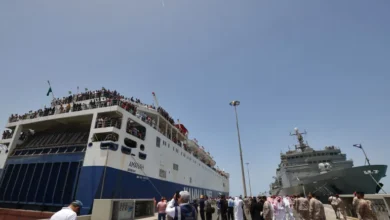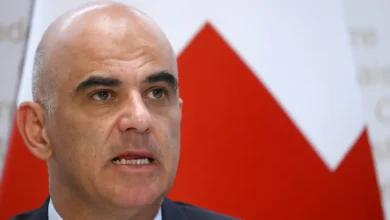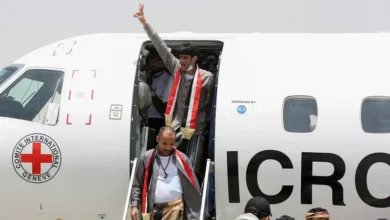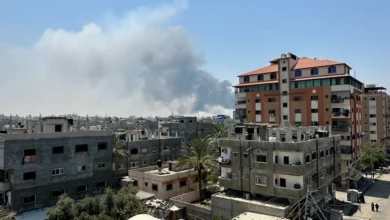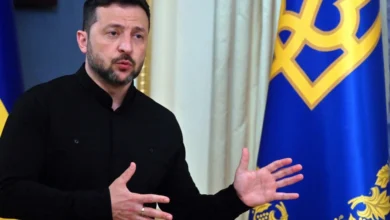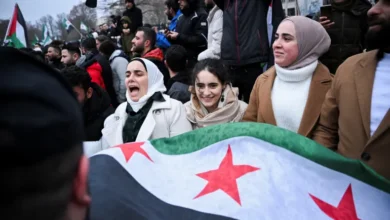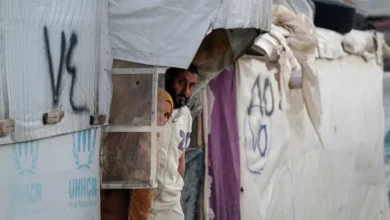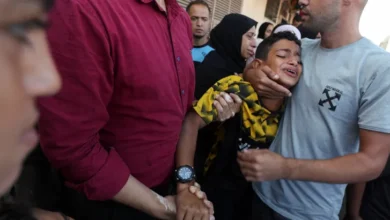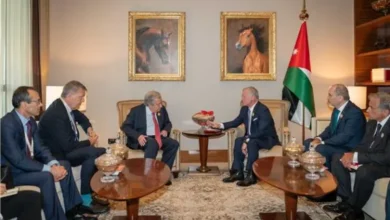Despite EU-Tunisia deal, Black refugees pushed out ‘at gunpoint’
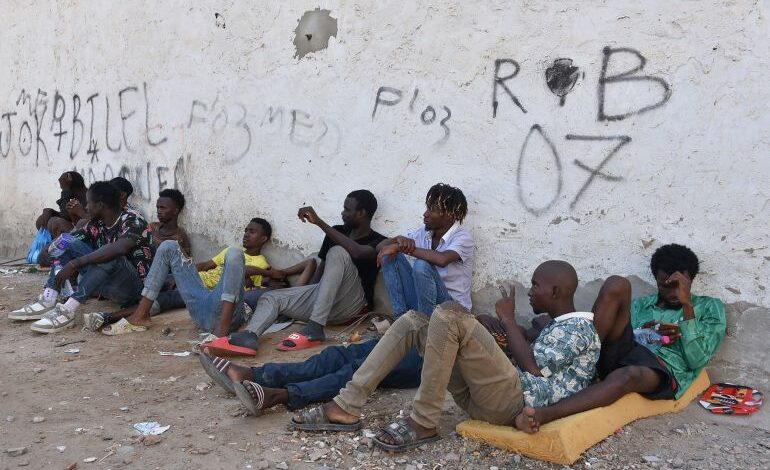
Tunisia’s mass expulsion of Black refugees and migrants to its borders with Libya and Algeria is continuing despite the award of more than 250 million euros ($280m) in aid from the European Union to support its failing economy and better manage its borders.
At least three videos provided by NGOs and Libyan border agencies have appeared since Sunday, appearing to show Tunisian security services expelling Black men, women and children from the territory to the border with Libya, where they were forced at gunpoint to walk into the desert without food and water.The EU has given 100 million euros ($112m) to improve Tunisia’s border security, while 150 million euros ($168m) was earmarked for the North African country’s stuttering economy as part of an agreement with the bloc.
But the benefits to the EU, beyond Tunisia ramping up its border security and surveillance, were not immediately clear.
Signing a memorandum of understanding on Sunday, European Commission President Ursula von der Leyen, who was accompanied by Italian Prime Minister Giorgia Meloni and Dutch PM Mark Rutte, welcomed the agreement as an opportunity to “invest in shared prosperity”.
Echoing von der Leyen’s comments, Meloni spoke warmly of “an important new step in dealing with the migration crisis in an integrated way”, before inviting Tunisia’s President Kais Saied to a migration summit in Rome next Sunday.
The EU has given 100 million euros ($112m) to improve Tunisia’s border security, while 150 million euros ($168m) was earmarked for the North African country’s stuttering economy as part of an agreement with the bloc.
But the benefits to the EU, beyond Tunisia ramping up its border security and surveillance, were not immediately clear.
Signing a memorandum of understanding on Sunday, European Commission President Ursula von der Leyen, who was accompanied by Italian Prime Minister Giorgia Meloni and Dutch PM Mark Rutte, welcomed the agreement as an opportunity to “invest in shared prosperity”.
Echoing von der Leyen’s comments, Meloni spoke warmly of “an important new step in dealing with the migration crisis in an integrated way”, before inviting Tunisia’s President Kais Saied to a migration summit in Rome next Sunday.
Hundreds continue to be expelled from across Tunisia after violence took hold in the port city of Sfax, a destination point for many Black sub-Saharan Africans fleeing war and poverty.
The unrest began after a February speech by Saied, warning of demographic change in Tunisia that was denounced as “racist”.
It has dogged the lives of many, culminating in street battles between local residents, the police and Black sub-Saharan Africans after the death of a local man in Sfax in early July.
